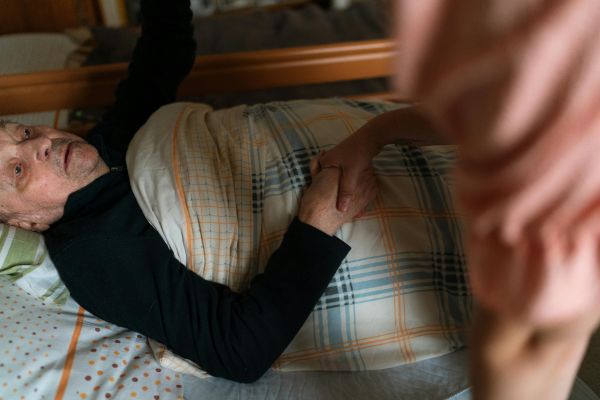Aged Care Homes In Australia With Visa Sponsorship
The aged care sector in Australia is experiencing a profound transformation, driven by an aging population and a growing demand for skilled healthcare professionals. As the nation grapples with workforce shortages, aged care homes in Australia with visa sponsorship have emerged as a viable pathway for international nurses and caregivers to build rewarding careers while addressing critical needs in the sector. This comprehensive guide explores the opportunities, processes, challenges, and benefits associated with working in aged care homes in Australia, with a focus on visa sponsorship for overseas professionals. It aims to provide actionable insights for those seeking to navigate this promising career path.
Understanding the Demand for Aged Care Workers in Australia
Australia’s population is aging rapidly, with projections indicating that by 2050, over 22% of the population will be aged 65 or older, according to the Australian Institute of Health and Welfare. This demographic shift has led to an unprecedented demand for aged care services, ranging from residential care to in-home support. The sector requires compassionate, skilled professionals to deliver high-quality care to elderly Australians, many of whom require assistance with daily living, medical care, and emotional support.
However, the local workforce alone cannot meet this demand. A report by the Australian Government’s Department of Health highlighted that the aged care sector will need an additional 110,000 workers by 2030 to keep pace with growing needs. Factors such as an aging domestic workforce, high turnover rates, and the specialized nature of aged care work have contributed to this shortfall. As a result, many aged care providers are turning to international talent, offering visa sponsorship to attract nurses, personal care assistants, and other direct care workers from overseas.
The Role of Visa Sponsorship in Addressing Workforce Shortages
Visa sponsorship has become a cornerstone of Australia’s strategy to address workforce shortages in critical sectors like aged care. It allows employers to sponsor overseas workers for temporary or permanent roles, providing a pathway to work legally in Australia. For aged care homes, visa sponsorship not only fills immediate staffing gaps but also brings diverse perspectives and skills to the sector, enriching the quality of care provided.
The Australian government has introduced specific visa programs to facilitate this process, recognizing aged care as a priority area. These programs enable aged care homes to recruit skilled professionals from around the world, offering them opportunities to live and work in Australia while contributing to the well-being of its elderly population. For international workers, this presents a chance to gain valuable experience, earn competitive salaries, and potentially secure permanent residency.
Types of Visas Available for Aged Care Workers
Several visa options exist for overseas professionals seeking to work in aged care homes in Australia. Each visa type has its own eligibility criteria, duration, and pathway to permanency, making it essential for candidates to understand their options before applying.
The Temporary Skill Shortage (TSS) visa, also known as the Subclass 482 visa, is one of the most common options for aged care workers. This visa allows employers to sponsor skilled workers for up to four years, with the possibility of renewal. It is divided into short-term and medium-term streams, with aged care roles like registered nurses typically falling under the medium-term stream, which offers a pathway to permanent residency after three years of full-time work.
Another key visa is the Employer Nomination Scheme (ENS) visa, or Subclass 186 visa, which provides a direct route to permanent residency. Aged care homes can nominate overseas workers for this visa, provided the worker has relevant qualifications, work experience, and meets other eligibility criteria. The Subclass 186 visa is particularly attractive for those seeking long-term stability in Australia, as it allows them to live and work in the country indefinitely.
The Aged Care Industry Labour Agreement (ACILA) is a specialized program designed to streamline the recruitment of overseas workers for the aged care sector. Under this agreement, aged care providers can sponsor workers for roles such as personal care assistants, nursing support workers, and aged or disabled carers. The ACILA offers concessional pathways, including relaxed English language requirements and lower salary thresholds, making it easier for employers to hire international talent.
For those looking to study and work simultaneously, the Subclass 500 Student visa allows international students to work part-time in aged care while pursuing qualifications like a Certificate III in Individual Support or a Diploma of Nursing. Graduates may then transition to a Temporary Graduate visa (Subclass 485), which permits full-time work and can serve as a stepping stone to employer-sponsored visas.
Eligibility Criteria for Working in Aged Care Homes with Visa Sponsorship
To secure a role in an aged care home in Australia with visa sponsorship, international candidates must meet specific criteria related to education, skills, work experience, and language proficiency. These requirements ensure that overseas workers can deliver high-quality care while integrating into Australia’s healthcare system.
Educational qualifications vary depending on the role. Registered nurses typically need a Bachelor of Nursing or equivalent degree recognized by the Australian Health Practitioner Regulation Agency (AHPRA). Personal care assistants and aged care workers often require a Certificate III or IV in Individual Support or Ageing Support, though some employers accept equivalent qualifications from overseas with a skills assessment.
Work experience is another critical factor. Most aged care roles require at least one to two years of relevant experience, particularly for positions like registered nurses or clinical care coordinators. For entry-level roles like personal care assistants, some providers offer on-the-job training, making these positions accessible to candidates with limited experience but a strong desire to learn.
English language proficiency is mandatory for most visa programs. Candidates must demonstrate their skills through tests like the International English Language Testing System (IELTS) or the Occupational English Test (OET). The TSS visa, for example, requires an IELTS score of at least 5.0 overall, with no component below 4.5, though requirements may vary under labour agreements like the ACILA.
Additionally, candidates must undergo health and character checks, including police clearances, to ensure they meet Australia’s immigration standards. For roles requiring registration, such as nursing, AHPRA registration is essential, which may involve a bridging program for overseas-trained nurses to align their skills with Australian standards.
Popular Aged Care Roles Eligible for Visa Sponsorship
Aged care homes in Australia offer a diverse range of roles, many of which are eligible for visa sponsorship due to ongoing shortages. Understanding these roles can help international workers identify positions that align with their skills and career goals.
Registered nurses are among the most sought-after professionals in aged care. They provide clinical care, administer medications, and coordinate treatment plans for residents, often working in residential aged care facilities or community settings. Their advanced skills and qualifications make them prime candidates for sponsorship under the TSS or ENS visa programs.
Personal care assistants (PCAs) play a vital role in supporting residents with daily activities such as bathing, dressing, and eating. They also provide companionship and emotional support, enhancing the quality of life for elderly individuals. PCAs are often sponsored under the ACILA, as the role requires compassion and dedication rather than extensive formal qualifications.
Nursing support workers assist registered nurses with tasks like monitoring vital signs, maintaining patient records, and ensuring a safe environment for residents. This role bridges the gap between clinical and personal care, making it a valuable position in aged care homes. Sponsorship for nursing support workers is commonly available through labour agreements.
Aged or disabled carers focus on delivering personalized care to elderly or disabled residents, helping with mobility, household tasks, and social engagement. These roles are in high demand, particularly in regional and remote areas, where visa sponsorship opportunities are often more abundant due to local staffing shortages.
Clinical care coordinators and facility managers are leadership roles that involve overseeing care delivery, managing staff, and ensuring compliance with aged care quality standards. While these positions typically require significant experience, they offer higher salaries and stronger sponsorship prospects, often leading to permanent residency.
The Process of Securing a Job in Aged Care with Visa Sponsorship
Securing a job in an aged care home in Australia with visa sponsorship involves several steps, from researching opportunities to relocating and starting work. While the process can be complex, careful preparation can make it manageable and rewarding.
The first step is to research aged care providers and job opportunities. Large providers like Estia Health, Bupa Aged Care, and Regis Aged Care often have programs for international workers, including visa sponsorship. Online job boards such as SEEK, Indeed, and Jora regularly list aged care roles with sponsorship options. Additionally, recruitment agencies like Sanctuary Recruitment and Absolute Immigration specialize in placing overseas workers in the sector, offering guidance on visas and compliance.
Once potential employers are identified, candidates should prepare their credentials. This includes obtaining a skills assessment if required, such as through the Australian Nursing and Midwifery Accreditation Council (ANMAC) for nurses, or the Australian Community Workers Association for carers. Ensuring educational qualifications are recognized in Australia is crucial, as is passing English language tests like IELTS or OET.
Applying for jobs involves tailoring your resume and cover letter to highlight relevant experience, qualifications, and a genuine passion for aged care. Many employers conduct interviews via video call for international candidates, so preparing for these by researching the employer and practicing common questions can improve your chances of success. Highlighting your willingness to relocate and adapt to Australia’s healthcare system can set you apart.
After receiving a job offer, the employer will initiate the visa sponsorship process. For a TSS visa, this involves the employer nominating you for the role and submitting an application to the Department of Home Affairs. The nomination includes details of the position, salary, and compliance with labour market testing requirements (unless waived under a labour agreement). Once the nomination is approved, you’ll apply for the visa, providing documents like your passport, qualifications, English test results, and health and character checks.
The visa application process culminates in an interview at an Australian embassy or consulate if you’re applying from overseas. If approved, you’ll receive your visa, allowing you to enter Australia and begin work. Some employers offer relocation support, including assistance with travel arrangements and temporary housing, so it’s worth negotiating these benefits during the job offer stage.
Upon arrival, you may need to complete additional steps, such as registering with AHPRA for nursing roles or attending orientation with your employer. Familiarizing yourself with Australia’s aged care standards, such as those set by the Aged Care Quality and Safety Commission, will help you integrate into your role and deliver high-quality care.
Top Aged Care Providers in Australia Offering Visa Sponsorship
Several aged care providers in Australia are known for their commitment to hiring international workers and offering visa sponsorship. These organizations operate across various states and territories, providing opportunities in urban, regional, and remote settings.
Estia Health is one of Australia’s largest aged care providers, with facilities in Victoria, New South Wales, Queensland, and South Australia. They offer sponsorship for registered nurses and personal care assistants under the TSS visa, with a pathway to permanent residency via the Subclass 186 visa. Estia Health emphasizes professional development, providing training and support to help international workers thrive.
Bupa Aged Care operates over 70 homes nationwide, delivering residential, respite, and specialized dementia care. Bupa frequently sponsors overseas nurses and carers, particularly in regional areas where shortages are acute. Their sponsorship programs include relocation assistance and mentorship, ensuring a smooth transition for new hires.
Regis Aged Care has a strong presence in metropolitan and regional areas, with a focus on high-quality clinical care. They offer visa sponsorship for roles like registered nurses and clinical care coordinators, often under the ACILA or TSS visa programs. Regis is known for its supportive work environment and competitive salaries, making it an attractive option for international candidates.
Whiddon, a not-for-profit provider, operates in New South Wales and Queensland, with a focus on regional communities. They sponsor both registered nurses and assistants in nursing (AINs) under the ACILA, providing pathways to permanent residency after two years of full-time work. Whiddon’s commitment to community-centric care appeals to workers seeking meaningful roles.
Sanctuary Recruitment partners with aged care homes across Australia to place overseas nurses on temporary, permanent, and contract roles. They hold a labour agreement that allows sponsorship under the TSS visa, with a pathway to permanent residency after a 24-month commitment. Sanctuary’s expertise in aged care recruitment makes them a valuable resource for international candidates.
Benefits of Working in Aged Care Homes in Australia
Working in aged care homes in Australia offers numerous benefits for international workers, making it a fulfilling career choice. These advantages extend beyond financial rewards, encompassing personal and professional growth.
One of the most significant benefits is the competitive salary. Registered nurses in aged care can earn between AUD 70,000 and AUD 100,000 annually, depending on experience and location, according to SEEK data. Personal care assistants and carers typically earn AUD 50,000 to AUD 65,000 per year, with opportunities for overtime and penalty rates for night or weekend shifts. Many aged care providers also offer salary packaging, allowing workers to reduce taxable income and increase take-home pay.
Career advancement opportunities abound in the aged care sector. International workers can pursue further education, such as a Diploma of Nursing or a Master’s in Nursing, to transition into higher-paying roles like nurse practitioner or facility manager. Employers often support professional development through training programs, mentorship, and access to continuing education units (CEUs) required for maintaining registration.
Visa sponsorship often provides a pathway to permanent residency, a major draw for international workers. Programs like the TSS visa and Subclass 186 visa allow workers to apply for permanent residency after meeting work and residency requirements, typically two to three years. This opens the door to long-term stability, access to Australia’s healthcare and education systems, and the possibility of citizenship in the future.
The work environment in aged care homes is another advantage. Many facilities foster a supportive, team-oriented culture where workers build close relationships with colleagues and residents. The opportunity to make a tangible difference in the lives of elderly individuals—helping them maintain dignity, independence, and joy—adds a deep sense of purpose to the role.
Australia’s lifestyle and multicultural society also enhance the appeal of working in aged care. The country offers a high standard of living, beautiful landscapes, and vibrant cities, making it an attractive destination for relocation. Its diverse population means international workers often find communities that share their cultural heritage, easing the transition to life abroad.
Challenges Faced by International Aged Care Workers
Despite the many benefits, international workers in aged care homes face challenges that require resilience and adaptability. Understanding these hurdles can help candidates prepare and succeed in their roles.
Cultural adjustment is a common challenge. Australia’s healthcare system and workplace norms may differ significantly from those in other countries. For example, the emphasis on person-centered care and resident autonomy may contrast with more hierarchical models elsewhere. Additionally, social customs, communication styles, and expectations around punctuality or teamwork may take time to navigate.
The emotional demands of aged care work can also be significant. Caring for elderly residents, many of whom have complex health needs or are nearing the end of life, can be emotionally taxing. Workers may form deep bonds with residents, making loss or decline harder to process. Building emotional resilience and seeking support through colleagues or employee assistance programs can help manage this aspect of the job.
Financial costs associated with relocation and visa processing are another consideration. While some employers cover visa fees or provide relocation assistance, others may not, leaving workers to budget for expenses like credential evaluations (AUD 300–500), English tests (AUD 200–300), visa application fees (AUD 1,000–3,000), and travel costs (AUD 1,000–5,000). Planning ahead and negotiating support with employers can mitigate these costs.
Visa processing delays can extend the timeline for starting work, particularly for candidates from countries with high application volumes, such as India or the Philippines. The Department of Home Affairs reports that TSS visa processing can take 6–12 months, depending on individual circumstances. Staying in regular contact with employers and immigration agents can help manage expectations during this period.
Finally, regional and remote postings, often required for visa sponsorship, can present lifestyle challenges. While these areas offer unique community experiences, they may lack the amenities of urban centers, and workers may feel isolated. However, many regional employers provide additional incentives, such as subsidized housing or higher pay, to attract talent.
Top Regions in Australia for Aged Care Jobs with Visa Sponsorship
Australia’s aged care opportunities vary by region, with certain areas offering more sponsorship prospects due to higher demand or workforce shortages. Exploring these regions can help international workers find roles that suit their preferences and career goals.
Victoria, particularly Melbourne and regional areas like Geelong and Ballarat, is a hub for aged care employment. The state’s large elderly population drives demand for workers, with providers like Estia Health and Bupa Aged Care offering sponsorship for roles across the spectrum. Salaries in Victoria are competitive, with registered nurses earning AUD 75,000–95,000 annually, and the state’s cultural diversity makes it welcoming for international workers.
New South Wales (NSW), including Sydney and regional towns like Tamworth and Dubbo, has a robust aged care sector. Providers such as Regis Aged Care and Whiddon operate numerous facilities, sponsoring nurses and carers under labour agreements. Regional NSW is particularly attractive for sponsorship, as shortages are more pronounced, and employers often provide relocation incentives. Average salaries for carers in NSW range from AUD 50,000 to AUD 65,000 per year.
Queensland, with cities like Brisbane and regional areas such as Cairns and Townsville, offers a warm climate and growing opportunities in aged care. The state’s tourism-driven economy and aging population create demand for workers, with organizations like Sanctuary Recruitment placing sponsored candidates in both urban and remote settings. Queensland’s lower cost of living compared to Sydney or Melbourne is an added benefit, with RN salaries averaging AUD 70,000–90,000.
South Australia, including Adelaide and rural regions like the Barossa Valley, is known for its supportive aged care sector. Employers often sponsor workers under the ACILA, particularly for regional roles where shortages are acute. The state’s relaxed lifestyle and affordable housing appeal to those seeking a slower pace, with carers earning AUD 50,000–60,000 annually.
Western Australia (WA), particularly Perth and remote areas like the Pilbara, has a high demand for aged care workers due to its vast geography and dispersed population. Providers like Roshana Pty Ltd offer visa sponsorship for candidates willing to work in regional settings, with salaries often higher to reflect the remoteness—RNs can earn AUD 80,000–100,000 per year.
Tasmania, though smaller, offers unique opportunities for aged care workers, especially in regional areas like Launceston and Hobart. The state’s tight-knit communities and natural beauty attract workers seeking a quieter lifestyle, and sponsorship opportunities are available through providers like Bupa Aged Care. Salaries are slightly lower than mainland averages, with carers earning around AUD 48,000–58,000 annually.
How Recruitment Agencies Facilitate Visa Sponsorship
Recruitment agencies play a pivotal role in connecting international workers with aged care homes offering visa sponsorship. These agencies streamline the process, providing expertise and support at every stage, from job placement to visa application.
Sanctuary Recruitment is a leading agency specializing in aged care, with a labour agreement that allows them to sponsor overseas nurses and carers. They offer end-to-end support, including credential evaluation, visa assistance, and relocation guidance, placing candidates in roles across Australia. Their focus on compliance ensures candidates meet all requirements, increasing the likelihood of visa approval.
Absolute Immigration provides strategic migration services tailored to the aged care sector. They work with providers to develop sponsorship programs, assisting candidates with visa applications under the TSS, ENS, and ACILA frameworks. Absolute Immigration also offers skills assessments and advice on labour agreements, helping candidates navigate complex immigration requirements.
MMMigration & Recruitment focuses on filling skills gaps in aged care, offering visa solutions like the TSS visa and student pathways. They assist employers in identifying suitable candidates and guide workers through the sponsorship process, ensuring all parties meet regulatory obligations. Their expertise in regional placements makes them a valuable partner for candidates open to rural roles.
Health Carousel International and Conexus MedStaff, while more U.S.-focused, have expanded into Australia, partnering with aged care homes to place international nurses. They provide comprehensive support, including NCLEX preparation for nurses, visa processing, and cultural assimilation training, ensuring candidates are well-prepared for their roles.
When choosing a recruitment agency, candidates should look for those with a proven track record, transparent fees, and strong relationships with aged care providers. Reading reviews from other workers and asking about success rates for visa approvals can help identify reputable agencies.
Cultural Adaptation and Professional Development in Aged Care
Working in aged care homes in Australia requires adapting to both cultural and professional norms, which can differ significantly from those in other countries. Understanding these differences and investing in professional growth can enhance success in the sector.
Australia’s aged care system emphasizes person-centered care, where residents’ preferences, dignity, and autonomy are prioritized. This approach may contrast with more directive models elsewhere, requiring workers to develop strong communication and empathy skills. For example, residents may expect to make decisions about their daily routines, such as meal times or activities, and workers must facilitate these choices while ensuring safety and care standards.
Workplace culture in Australia tends to be collaborative and egalitarian, with less emphasis on hierarchy than in some other countries. Nurses and carers are expected to work as part of a team, contributing ideas and feedback during care planning. Building rapport with colleagues through open communication and mutual respect can ease this transition.
Professional development is highly encouraged in the aged care sector. Many employers offer training in areas like dementia care, palliative care, and infection control, which can enhance skills and job prospects. For nurses, pursuing certifications like the Aged Care Registered Nurse Graduate Certificate through universities like Flinders University can lead to specialized roles and higher pay.
Cultural adaptation extends beyond the workplace. International workers may need time to adjust to Australia’s social norms, such as casual greetings or a strong emphasis on work-life balance. Engaging with local communities—through cultural events, religious groups, or expat networks—can help build a sense of belonging and reduce homesickness.
Future Trends in Aged Care and Visa Sponsorship Opportunities
The aged care sector in Australia is evolving, with emerging trends shaping the future of work and visa sponsorship opportunities. Staying informed about these developments can help international workers position themselves for success.
Technology is transforming aged care, with innovations like telehealth, remote monitoring, and electronic health records becoming standard. Workers who are tech-savvy or willing to learn these tools will find themselves in high demand, as aged care homes seek to improve efficiency and care outcomes. Training in digital health platforms can be a valuable asset.
The focus on preventive care is growing, with aged care homes increasingly offering wellness programs to reduce hospital admissions. Roles involving health education, physiotherapy support, and nutrition planning are expanding, creating new opportunities for sponsored workers with diverse skills.
Mental health support for the elderly is another priority area. The Royal Commission into Aged Care Quality and Safety (2021) highlighted the need for better mental health services in aged care, leading to increased demand for workers trained in psychological care. Pursuing training in mental health first aid or dementia care can open doors to specialized roles with sponsorship prospects.
Government policies continue to evolve, with initiatives like the ACILA reflecting a commitment to addressing workforce shortages through immigration. Future reforms may further streamline visa processes or expand eligibility criteria, making it easier for international workers to enter the sector. Keeping abreast of updates from the Department of Home Affairs can ensure candidates are prepared for new opportunities.
Sustainability in aged care, such as eco-friendly facilities and practices, is also gaining traction. Workers with knowledge of sustainable healthcare practices may find niche roles in progressive aged care homes, particularly those aiming to meet environmental standards.
Practical Tips for International Workers Seeking Aged Care Roles
Navigating the journey to working in an aged care home in Australia with visa sponsorship requires careful planning and proactive steps. Here are practical tips to enhance your chances of success.
Start by researching the sector thoroughly. Familiarize yourself with Australia’s aged care standards, such as those set by the Aged Care Quality and Safety Commission, and understand the specific needs of elderly care. This knowledge can help you tailor your applications and demonstrate your commitment during interviews.
Build a strong professional profile. Ensure your resume highlights relevant experience, qualifications, and soft skills like empathy and teamwork, which are critical in aged care. If possible, gain experience in your home country through volunteering or part-time work in aged care settings to strengthen your application.
Invest in language skills. Even if you meet the minimum English requirements, improving your fluency can enhance communication with residents and colleagues, making you a more competitive candidate. Practice conversational English and familiarize yourself with Australian slang and healthcare terminology.
Network with professionals in the field. Join online forums, LinkedIn groups, or associations like the Australian College of Nursing to connect with aged care workers and employers. Networking can lead to job leads, mentorship, and insights into the sponsorship process.
Be flexible with location and roles. Many sponsorship opportunities exist in regional or remote areas where shortages are more pronounced. Being open to these locations can increase your chances of securing a job, and these areas often offer additional benefits like subsidized housing or higher pay.
Prepare financially for the transition. Budget for visa fees, travel costs, and initial living expenses in Australia. Some employers offer relocation packages, so negotiate these where possible. Opening an Australian bank account and understanding tax obligations early can also ease the financial adjustment.
Seek support during relocation. Many aged care providers offer orientation programs to help international workers settle in. Take advantage of these, and connect with community resources like migrant centers or cultural associations to build a support network in your new city.
Personal Success Stories in Aged Care with Visa Sponsorship
Real-life stories of international workers who have successfully navigated the path to aged care roles in Australia can provide inspiration and practical lessons.
Consider Anna, a 29-year-old nurse from the Philippines who dreamed of working in Australia. With three years of experience in geriatric care, she applied through Sanctuary Recruitment, which helped her secure a TSS visa sponsorship with an aged care home in regional Victoria. The process took nine months, including passing the IELTS and obtaining AHPRA registration. Anna now earns AUD 82,000 annually as a registered nurse and is on track for permanent residency after her third year. She credits her success to perseverance, support from her employer’s orientation program, and joining a Filipino community group in her town.
Then there’s Raj, a 34-year-old personal care assistant from India who moved to South Australia under the ACILA. With a Certificate III in Individual Support and two years of experience, he was sponsored by a small aged care facility in the Barossa Valley. The lower English requirements under the labour agreement made the process accessible, and Raj’s employer provided subsidized housing for his first six months. He now earns AUD 55,000 per year, enjoys the close-knit community, and is saving to bring his family to Australia after securing permanent residency.
These stories highlight the diversity of experiences in aged care with visa sponsorship. While challenges like homesickness and visa delays are common, the rewards of meaningful work, financial stability, and a new life in Australia make the journey worthwhile for many.
Conclusion: Building a Future in Aged Care Homes in Australia
Aged care homes in Australia with visa sponsorship offer a transformative opportunity for international nurses and carers to build fulfilling careers while addressing a critical societal need. The sector’s growing demand, competitive salaries, and pathways to permanent residency make it an attractive option for those willing to navigate the immigration and relocation process.
From understanding visa options like the TSS, ENS, and ACILA to securing roles with leading providers like Estia Health, Bupa, and Regis, this guide has provided a roadmap for success. By preparing credentials, leveraging recruitment agencies, and embracing cultural adaptation, international workers can thrive in Australia’s aged care sector.
The future of aged care in Australia is bright, with emerging trends like technology integration, mental health focus, and sustainable practices creating new opportunities. For those ready to take on the challenge, working in aged care homes with visa sponsorship is not just a job—it’s a chance to make a lasting impact on the lives of elderly Australians while building a stable, rewarding future.





